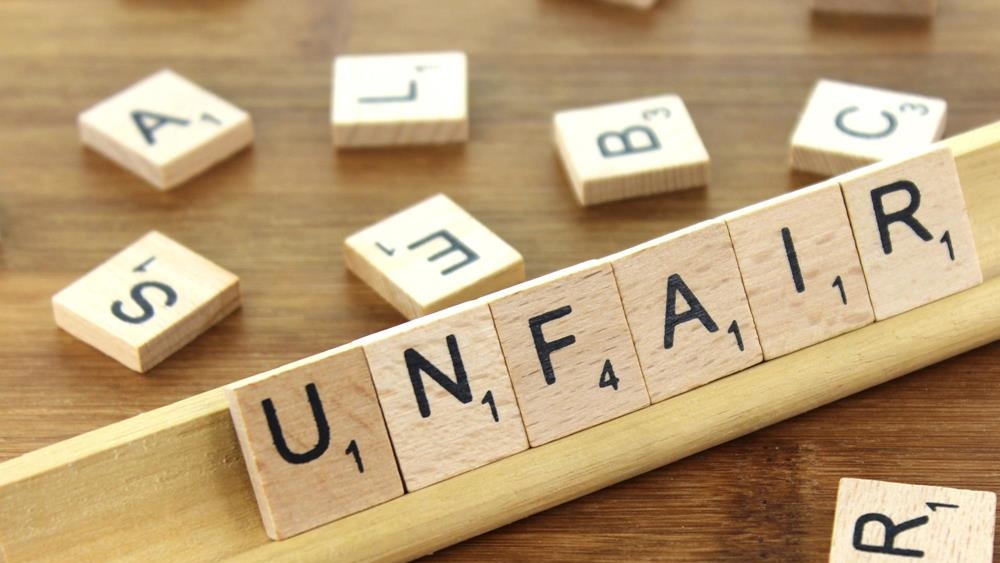The powerful unfairness of grace
Nothing in life is fair. Nothing at all. There is no balance, no ledger, no tit-for-tat, no yin-yang. Unfairness is the way of the world: injustice, inhumanity, imbalance. Which is why the rule of grace is the best strategy for how the world might work best.
Without grace, we are stuck with the law as our only way to make an attempt at justice. We establish laws to restrain evil behaviour and punish it, set wise guidelines, and promote what is good, carrot-and-stick style. But it doesn’t really work, because everyone is not on an even playing field to start with. As cynical French writer Anatole France wrote, “The law, in its majestic equality, forbids the rich as well as the poor to sleep under bridges, to beg in the streets, and to steal bread”.
One person (let’s call him Larry) is born into poverty, another (Harry) into royalty. Nothing fair about that. Neither did anything to “deserve” their circumstances. Life is just like that. Unfair.
“I do not deserve this,” should be Harry’s first thought every morning and last at night.
For life to work out well, both Larry and Harry will have to live by grace. This is a huge challenge for both of them. The impoverished Larry cannot reasonably expect that life will turn around, although if he has been blessed with skill, health and opportunity, his circumstances may change. But that, too, is unfair. What about the poor person who doesn’t have these blessings?
And likewise, the regally born Harry has to see the unfairness of his circumstances: the concentration of wealth, the history of oppression (that’s how royalty comes about, let’s be honest), and the nearly limitless power. These are profoundly unfair, and seeing them as such is surely the key to living well as a royal. “I do not deserve this,” should be Harry’s first thought every morning and last at night.
In the midst of unfairness, the Christian is to accept it for himself, but not for others. That’s what grace looks like.
This realisation was the turning point for Siddhartha Guatama (the Buddha), who according to legend became increasingly aware of the poverty and suffering outside his life of privilege behind palace walls. The Buddha’s response was quietism – lower your expectations, retreat from desire and hope, live a meditative life. But the Christian response is grace – seek the good of others, prefer them to yourself, overcome the world’s unfairness through love.
In the midst of unfairness, the Christian is to accept it for himself, but not for others. That’s what grace looks like.
When governments face social issues, they are always hamstrung by the unfairness of the world. Social security laws attempt to treat everyone fairly, but end up being so complicated that those who need them most can’t access them. The horrifying scenes at the US/Mexico border, as I write, are another instance where the law of the land just doesn’t seem to reflect what most people would call fair. Because fairness is elusive and doesn’t work as a way of being in community.
Fairness will always get trumped by kindness. Equity by grace.
Only grace works. This is all the more important because we individuals have limited information about how life will pan out for us. As academic and professional poker player Annie Duke stresses in her fascinating book, Thinking In Bets: Making Smarter Decisions When You Don’t Have All the Facts, life is more like a game of poker than a game of chess. In chess, all the facts are known: winning or losing depends on making the right decision for the best outcome. But life isn’t like that; it’s more like poker, where the future can’t be predicted and there are plenty of surprises around the corner. Chess is fair; poker is not. At least for those of us not enjoying the all-knowing-God point of view.
Since life is a bit like poker, you will have to get used to unfairness – bad luck, rotten runs, turns for the worse – even when you make reasonable decisions. It’s how you respond to these circumstances that makes a difference, not whether you win the hand.
If you genuinely believe in fairness for both Larry and Harry, you have to believe in a day of reckoning.
Fairness will always get trumped by kindness. Equity by grace. Laying down the rules by laying down your privileges. In fact, I think the beloved Aussie “fair go” is less about being fair, and more about showing some grace.
Grace can be extremely practical. When you let someone in front of you in the supermarket queue because they have a small baby, that’s grace, and that works. You were there first, but that doesn’t matter. It’s probably unfair that you beat the mum into the queue anyway. Time for grace.
When you donate your time to help at an aged-care home, despite the fact that your time is worth money for most of the week, that’s grace, and it works. When you employ people who might struggle to get work because of their disabilities, that’s grace and it works (actually, it’s good for business, according to Job Access).
If you genuinely believe in fairness for both Larry and Harry, you have to believe in a day of reckoning. That’s the only way fairness can emerge – in the long run, in the final analysis. And only God could possibly know what that will look like. The closest we get to it is in the teachings and sacrifice of Christ, as fine an example as ever graced the earth. “For the law was given through Moses; grace and truth came through Jesus Christ” (John 1:17).
Greg Clarke is CEO of Bible Society Australia.
Email This Story
Why not send this to a friend?



